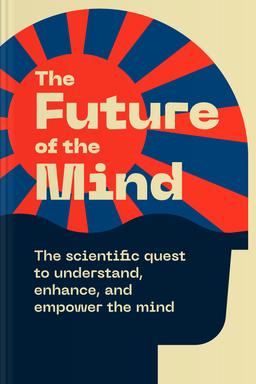What is Astrophysics for People in a Hurry about?
This engaging, concise guide to astrophysics offers an accessible overview of complex topics such as the universe's origins, black holes, and dark matter. With clear explanations and witty insights, it caters to curious minds seeking a fundamental understanding of cosmic phenomena without overwhelming detail. Perfect for busy readers, it distills the wonders of the cosmos into digestible snippets, sparking a fascination for the mysteries of space.
Who should read Astrophysics for People in a Hurry
- Curious minds seeking a quick understanding of astrophysics.
- Science enthusiasts with limited time for deep reading.
- Students looking for accessible science knowledge and insights.
What is The Disordered Cosmos about?
This insightful exploration delves into the mysteries of dark matter and the fabric of spacetime, weaving together science, personal experience, and social commentary. The author intertwines her journey as a physicist with reflections on race, gender, and identity, challenging conventional narratives within both science and society. Readers are invited to consider the cosmos not only as a scientific frontier but also as a reflection of human aspirations and social issues.
Who should read The Disordered Cosmos
- Science enthusiasts eager for cosmic mysteries.
- Students and scholars of astrophysics and cosmology.
- Anyone interested in the intersection of science and identity.
What is Stuff Matters about?
This book explores the fascinating science behind everyday materials, revealing how they influence our lives and the world around us. The author, a materials scientist, delves into the properties and histories of substances like steel, chocolate, and glass, demonstrating their unexpected connections to culture, technology, and innovation. Through engaging anecdotes and insightful explanations, readers gain a deeper appreciation for the materials that make up our environment.
Who should read Stuff Matters
- Materials science enthusiasts seeking deeper insights.
- Designers interested in innovative material applications.
- Anyone curious about everyday materials' hidden stories.
What is The Future of the Mind about?
Exploring the frontiers of neuroscience, this book delves into the workings of the human mind, examining how emerging technologies can enhance cognitive abilities and possibly unlock the mysteries of consciousness. Kaku discusses breakthroughs in brain science, the potential for telepathy, and the implications of artificial intelligence. Combining scientific insights with future possibilities, the narrative invites readers to ponder the profound impact of understanding and manipulating our intellect.
Who should read The Future of the Mind
- Science enthusiasts curious about brain research
- Readers interested in neuroscience and consciousness
- Individuals seeking to enhance mental abilities
What is Cosmic Queries about?
Exploring the fundamental questions of existence, this engaging guide combines science and philosophy to delve into humanity's origins, our place in the universe, and potential futures. Through thought-provoking discussions and cosmic insights, it encourages readers to ponder their identity and destiny while unraveling the mysteries of time, space, and our role within the cosmos.
Who should read Cosmic Queries
- Science enthusiasts seeking answers about the universe.
- Readers curious about human origins and cosmic evolution.
- Individuals interested in philosophical questions of existence.




